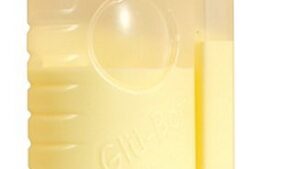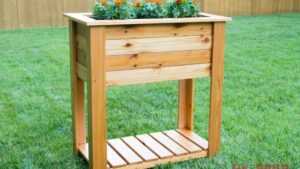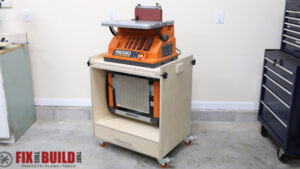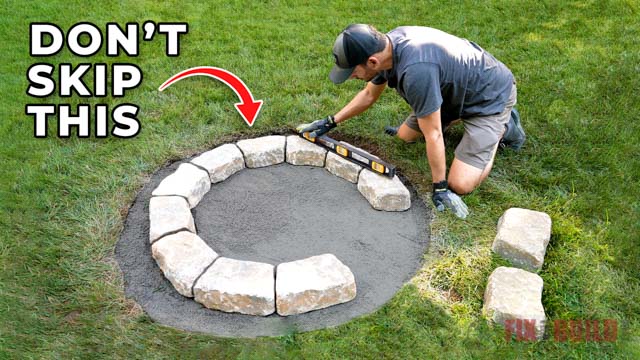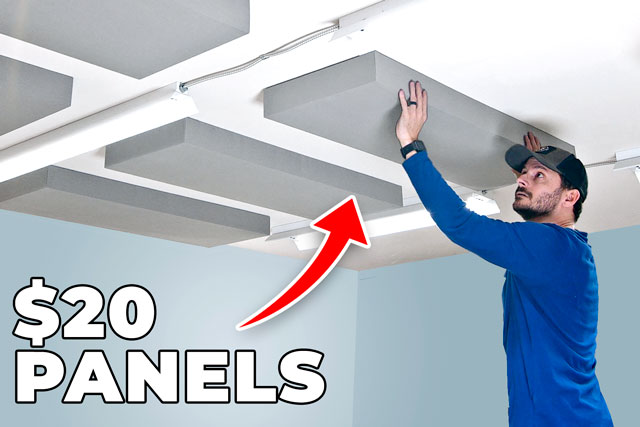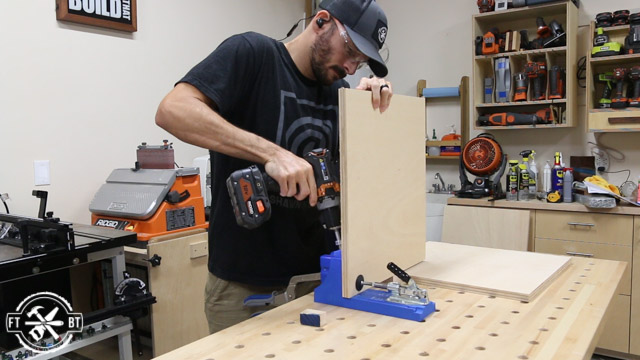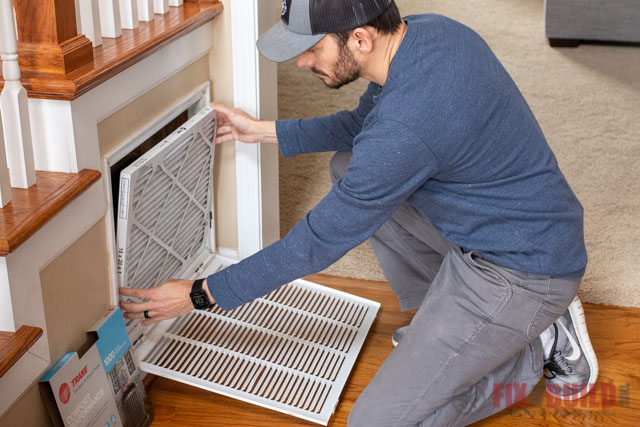
Do you know what a MERV rating is and why it’s important? If the answer is no, you’re not alone! We just got a new high efficiency furnace, and I wanted to figure out which air filter would be the best fit. After doing a lot of research I’ve come up with some quick and easy tips to help you pick the right MERV rated furnace filter for your furnace.
I’m partnering with Trane Residential to bring you this blog post which is part of my HVAC Series. Trane has resources on their website to help you answer any other questions you have about MERV rated filters, or anything else heating and air conditioning related.
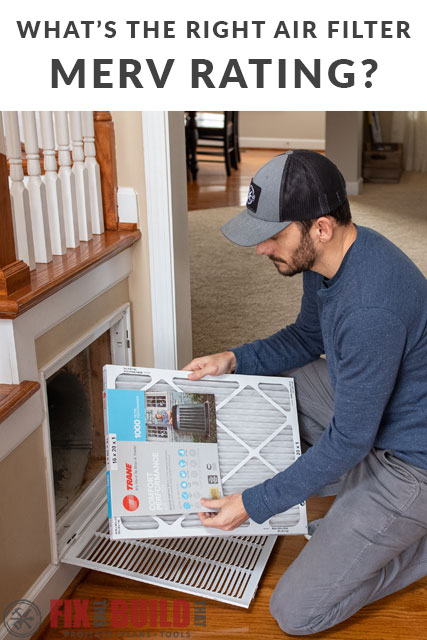
I’m not an HVAC expert, but I have done a lot of research on this subject and wanted to share with you what I’ve found. I did all the crawling around the internet and boiled the information on HVAC filters and MERV ratings into some easily digestible questions and answers below!
1. What is MERV rating?
Let’s start at the very beginning, what is a MERV rating anyway? MERV stands for Minimum Efficiency Reporting Value. But what does that mean? A MERV rating is a standard that shows how effective an air filter is at removing small particulates from the air. In other words, how well does the furnace air filter keep bad stuff from shooting out of your air vents. The filters can remove many common particulates including pet dander, dust mites, tobacco smoke, pollen, mold spores and bacteria.
MERV filter ratings range from 1-20 with 20 being the most efficient at removing particulates. The higher the MERV rating the better the filter’s ability to block fine particulates.
2. What’s the Difference Between FPR vs MERV?
MERV ratings are the industry standard and FPR ratings were created by Home Depot. MERV ratings were created by the leading independent professional organization – The American Society of Heating, Refrigerating and Air-Conditioning Engineers (ASHRAE). FPR ratings were created by The Home Depot, and you’ll see them in their stores.
Both ratings apply to the same air filters, they just label them differently, for example:
- MERV 8 = FPR 5/Green
- MERV 11 = FPR 7/Red
- MERV 13 = FPR 10/Blue
3. Is a higher MERV rating better?
Bigger is better, right? Not necessarily in this case. MERV 20 filters block the most particulates, but they can also restrict airflow to your furnace. When this happens it can cause a big pressure drop. Your blower is rated to handle a certain amount of drop in pressure, but past that point, you’ll have problems such as:
- The furnace may not be able to keep your house warm because there isn’t enough heated air coming out
- The HVAC system may have to use more energy to attempt to keep your house warm
4. What MERV Rating is Best for Home Use?
That depends on your situation and what you’re trying to achieve. Do you have seasonal allergies or asthma? Are you allergic to dust, pollen or mold? Are you looking for a basic air filter to get the job done and not break the bank? The MERV rated air filter you choose will depend on many factors. To help you make the best choice, I’m going to break down the MERV ratings into groups and highlight their features below.
MERV 1-4 Filters:
- Least expensive filters with the least features
- Blocks the fewest particulates; gives your furnace basic protection from dust
- Filters aren’t pleated
- These filters need to be replaced frequently (~ once a month)
MERV 5-8 Filters:
- MERV filters in this range tend to be the most popular for home and office use
- Good medium quality choice for your home
- Filters are pleated; made of electrostatically charged synthetic materials which trap particles as small as 3 microns
- Blocks mold spores, dust mite droppings and animal dander
- Can be changed less frequently (~ every 3 months)
MERV 9-12 Filters:
- Highest quality MERV filters to use with a standard HVAC system (without modifications)
- Filters are made with moisture-resistant materials and are reinforced with metal mesh for more support
- Filters in this range trap dust, bacteria, pollen, pet dander, and virus carriers
- Great choice for those who suffer from allergies or asthma
- Can be changed less frequently (~ every 3 months)
MERV 13-20 Filters:
- Used in specialized environments such as hospitals
- Typically not possible to use these air filters in your home without modifications to your HVAC system
5. Which Popular MERV Rated Filters Could Work For Me?
Now that you know more about what MERV rated filters are and how they work, which one is right for you? I’m going to go over a few of the most popular MERV rated filters to help you make your decision. The most popular are MERV 6, 8/9, and 11.
MERV 6 air filters
- MERV 6 filters are a solid choice; they have a pleated design which helps protect your furnace
- They trap and block more than 85% of airborne particles including dust mite droppings, animal dander, pollen, bacteria and mold
MERV 8 or 9 air filters
- MERV 8 or 9 air filters are the most popular choice for residential use
- They trap and block 90% of airborne particles, including mold, dust mites, pollen and larger dust particles
- Less expensive than higher rated filters
MERV 11 air filters
- MERV 11 filters are the highest functioning filters you can use on a residential HVAC system without having to modify your system
- They trap and block 95% of airborne particles including lint, dust, smoke, smog, almost all pet dander, pollen and mold
- Best choice for dealing with allergies and asthma
- They cost more than lower rated MERV filters
We use MERV 8 or 9 in our house and have recently switched over to the Trane Comfort Performance Filters. They hit the sweet spot we are looking for and are great for any brand HVAC system. They have 1000 micro particle reduction which is a MERV 9 equivalent. This helps keep clean air in our house and lets our HVAC system run efficiently.
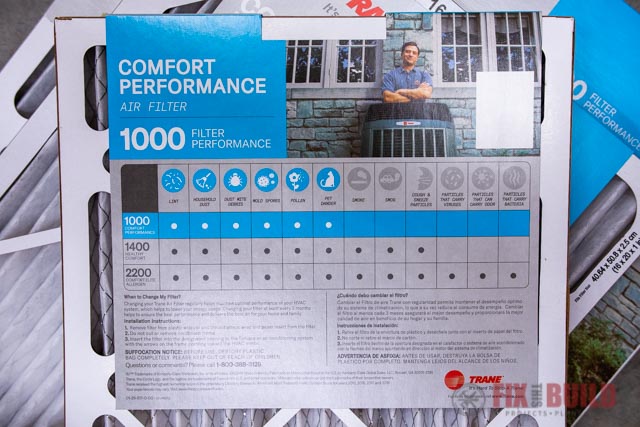
The Trane filters come in nine of the most common sizes to fit your needs. And they are available at your local Trane dealer or online at Walmart.com.
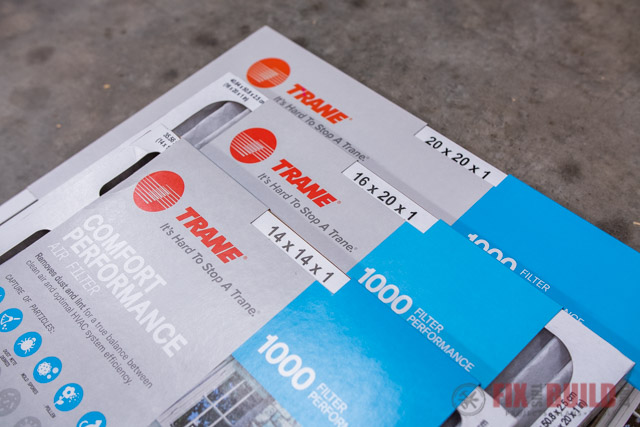
MERV ratings are important to understand and I hope these tips will help you pick the right one. For more information about all things HVAC, be sure to check out my HVAC Series. I go over everything from troubleshooting common problems, to basic maintenance and even how to pick a replacement.
Trane Residential provided me with product and/or monetary compensation as a sponsor of this build. All opinions are my own and are not filtered by the sponsor.



